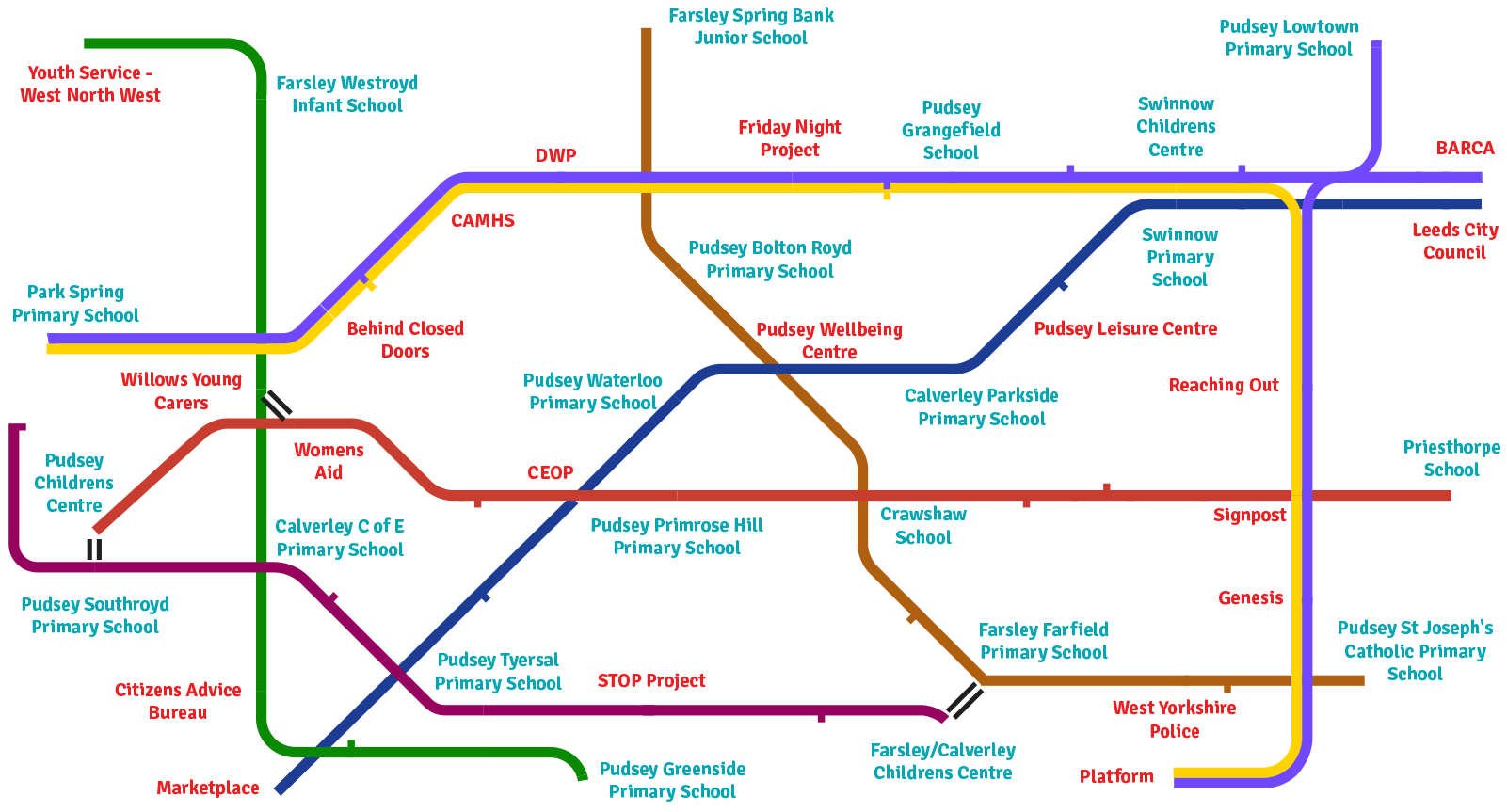Emotional Wellbeing Offer
What is Emotional Health and Wellbeing Support?
Early support for mental health wellbeing helps to remove the emotional barriers to learning and build resilience, self-esteem, confidence and appropriate communication skills. We can offer an integrated therapeutic approach to working with children, young people and families using age appropriate techniques.
The Offer
- 1:1 emotional wellbeing support
- Group work
- Liaison, training and consultation for colleagues
We work closely within the Cluster team and with schools and other services, to promote the emotional and psychological wellbeing of children, young people and families.
Cluster Counsellor (children/young people)
A fully trained and experienced professional counsellor, who works in accordance with the British Association for Counselling & Pyschotherapy (BACP) ethical framework for good practice in counselling and psycotherapy.
Cluster counsellors provide emotional health assessments and interventions for children and young people 5-18 years and their families.
Emotional wellbeing worker
1:1 therapeutic work with children and young people
Personalised for a wide range of emotional and behavioural issues; each child/young person is offered short term age appropriate interventions. Creative activities such as drawing, painting and play can be used alongside talking.
Evidence shows that 1:1 therapy with children and young people is more successful when it involves family engagement in the process. Supporting the child enables them to fully engage and achieve better outcomes overall.
Child and Adolescent Psychotherapy in Schools
The Cluster has an art therapist who can provide direct therapeutic work with children, parents and families. drawing on their expertise in mental health and emotional well-being.
The kind of interventions that the art therapist can offer parents and families in school include:
- individual psychotherapy
- therapeutic sessions for parents to support their child’s or adolescent’s regular psychotherapy
- brief family work
Access to therapeutic help at school can be the only means of receiving help for children and young people in great emotional distress or suffering with serious mental health problems. The kind of complex difficulties that the art therapist can work with in school include:
- anxiety
- bereavement issues
- trauma and post-traumatic stress
- impact of severe deprivation and abuse
- entrenched separation and attachment difficulties
- eating disorders e.g. anorexia and bulimia
- neuro-developmental disorders e.g. ADHD, autism
- conduct and emotional disorders
- emotional aspects of learning and physical disabilities
- depression, suicidal thoughts and deliberate self-harm
A core function of the art therapists contribution to children’s emotional wellbeing is to work actively with the network around the child. This is to ensure that the child’s emotional needs are held in mind by all who have contact with them and promote positive development and growth.
Referrals can be made via Guidance and Support for children/young people where:
- The difficulty is continuing over a significant period of time and is not a normal reaction to a life event
- The difficulty is impacting negatively on the child/young person’s level of functioning at school/home
- The young person is experiencing moderate anxiety or low mood
- Family relationship difficulties are impacting on the child/young person
- There are concerns around attention difficulties or autistic spectrum difficulties.

